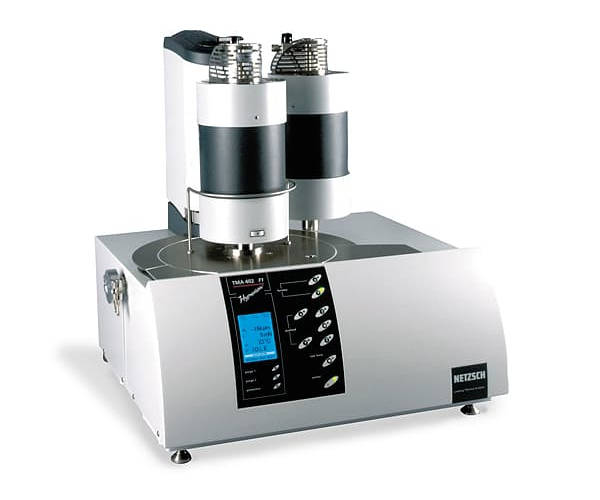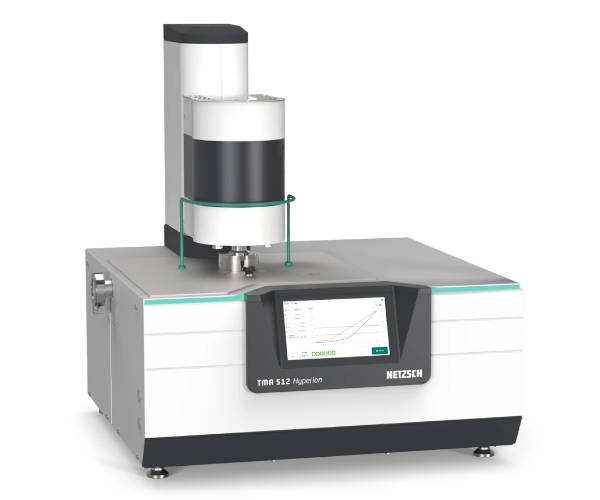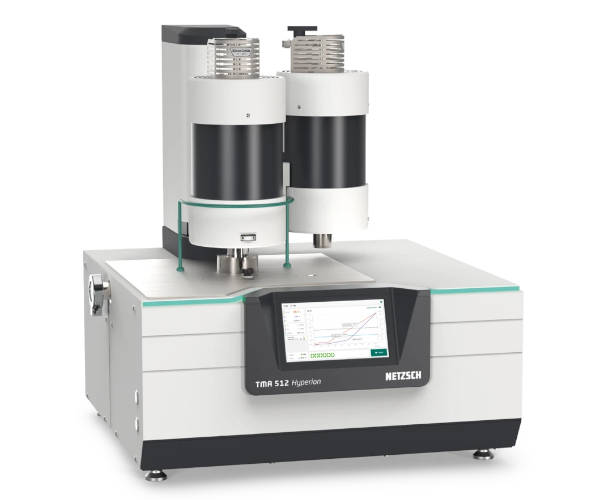MÁY PHÂN TÍCH CƠ NHIỆT (TMA)
Nhiều loại vật liệu trải qua sự thay đổi các đặc tính cơ nhiệt trong suốt quá trình gia nhiệt hoặc làm lạnh. Ví dụ, sự chuyển phase, các bước thiêu kết hay mềm hóa có thể xảy ra ngoài sự giãn nở về nhiệt. Phân tích TMA có thể cung cấp cái nhìn sâu sắc có giá trị về thành phần, cấu trúc, điều kiện sản xuất hoặc khả năng ứng dụng của nhiều loại vật liệu. Phạm vi ứng dụng của thiết bị này trong phân tích cơ nhiệt mở rộng từ kiểm soát chất lượng đến nghiên cứu và phát triển. Các lĩnh vực điển hình bao gồm nhựa và chất đàn hồi, sơn và thuốc nhuộm, chất kết dính, sợi và màng film, gốm, thủy tinh, kim loại và vật liệu composite.
Máy phân tích cơ nhiệt (TMA) xác định sự thay đổi kích thước của vật liệu rắn, lỏng và chất kết dính được tác động bởi nhiệt độ và/hoặc thời gian dưới một lực cơ lý xác định (DIN 51 005, ASTM E831, ASTM D696, ASTM D3386, ISO 11359 – Parts 1 to 3). Nó liên quan mật thiết đến hệ số giãn nở nhiệt (hệ số giãn nở theo chiều dọc), xác định sự thay đổi chiều dài của mẫu dưới một lực không đáng kể (e.g DIN 51 045).
Máy phân tích cơ nhiệt (TMA) xác định sự thay đổi kích thước của vật liệu rắn, lỏng và chất kết dính được tác động bởi nhiệt độ và/hoặc thời gian dưới một lực cơ lý xác định (DIN 51 005, ASTM E831, ASTM D696, ASTM D3386, ISO 11359 – Parts 1 to 3). Nó liên quan mật thiết đến hệ số giãn nở nhiệt (hệ số giãn nở theo chiều dọc), xác định sự thay đổi chiều dài của mẫu dưới một lực không đáng kể (e.g DIN 51 045).
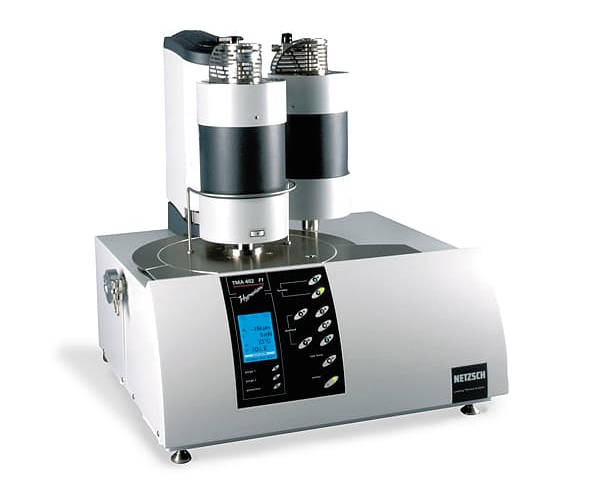
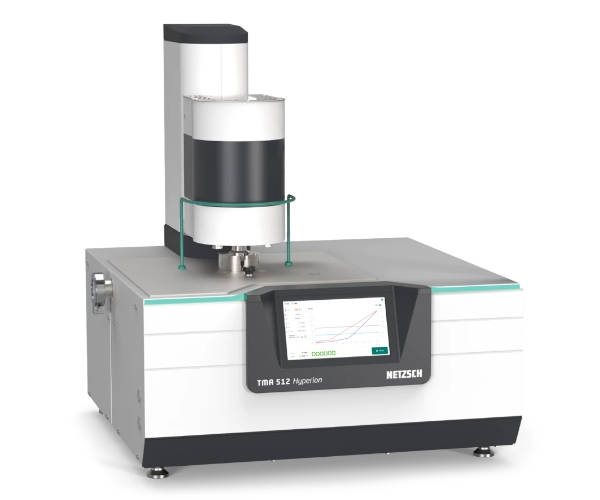
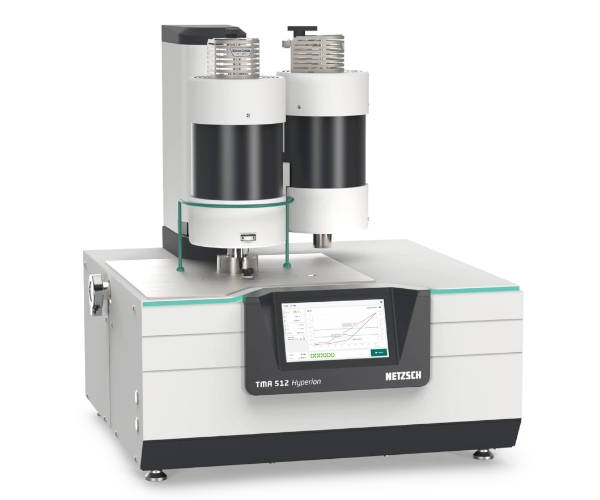
MÁY PHÂN TÍCH CƠ NHIỆT (TMA) SẢN PHẨM
Máy Phân Tích Cơ Nhiệt TMA 402 F1/F3 Hyperion®
Công nghệ này đã được thử thách qua thời gian; nó cũng được sử dụng trong các máy đo độ giãn nở nhiệt và cho phép đo được ở sự thay đổi chiều dài nhỏ nhất, trong phạm vi nanomet (độ phân giải điện tử là 0.125 nm).
- Đo đồng thời lực và tín hiệu chuyển vị
- Hệ thống đo ổn nhiệt kín chân không
- Kiểm soát lực chính xác
TMA 512 Hyperion® Select
TMA 512 Hyperion® Select vượt trội trong việc phát hiện ngay cả những thay đổi kích thước nhỏ nhất, mang lại những hiểu biết sâu sắc về hành vi vật liệu.
TMA 512 Hyperion® Supreme
TMA 512 Hyperion® Supreme: Khám phá chuyên sâu vật liệu qua phân tích thay đổi kích thước cực nhỏ

